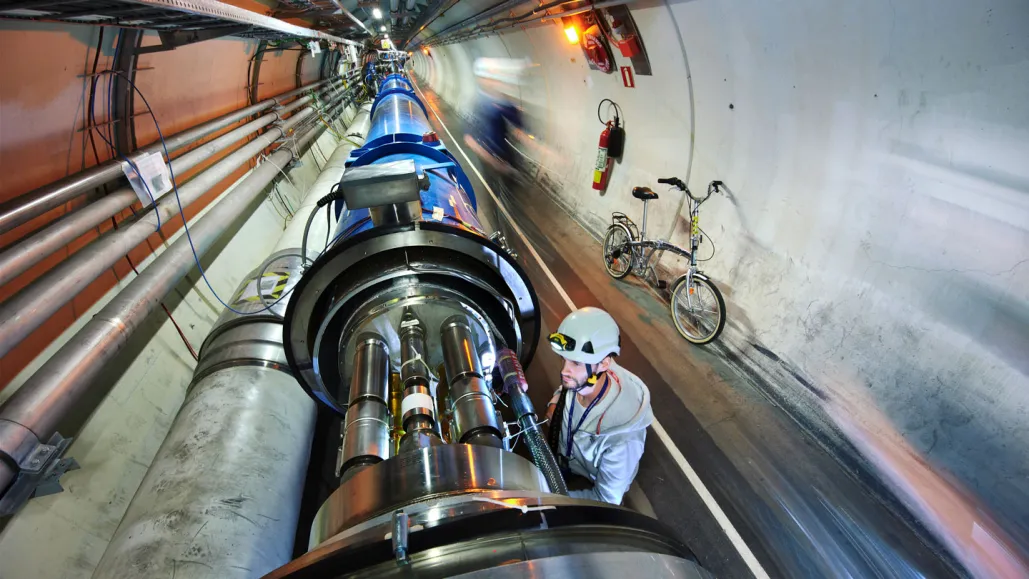Scientists at CERN, home to the renowned Large Hadron Collider (LHC), have proposed plans for a groundbreaking “supercollider” known as the Future Circular Collider (FCC). This massive undertaking, seen as the successor to the LHC, is designed to delve into the mysteries of 95% of the universe. The LHC, operational since 2008, made significant contributions such as discovering the Higgs boson, the “God particle.” However, it fell short in unraveling the enigmas surrounding dark matter and dark energy, crucial components for understanding the universe.
The FCC, part of CERN’s study, is anticipated to begin construction in the 2040s and is expected to have a circumference exceeding 56 miles. The ambitious project aims to advance the frontiers of energy and intensity in particle colliders, involving collaboration with universities and experts worldwide. While the proposal has garnered interest, it has also faced criticism, primarily due to its estimated £17 billion price tag.
Critics, including the UK’s former chief scientific adviser Prof Sir David King, question the project’s priorities in light of global challenges such as the climate emergency. Despite concerns, CERN asserts that the FCC’s environmental impact would be relatively low, using just one-sixth of the energy compared to similar projects. The scientific community and member nations, including the UK, are currently reviewing the plans, contemplating the potential benefits and drawbacks of this colossal scientific endeavor.















































